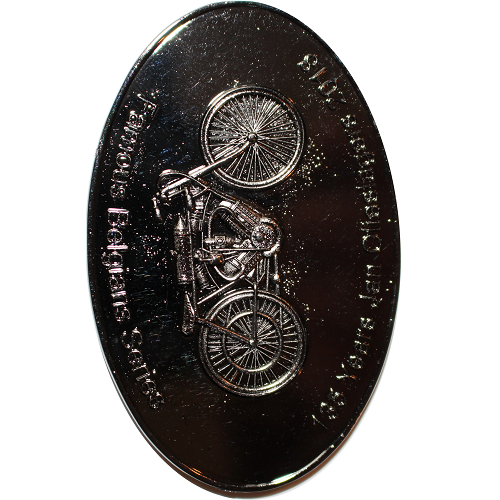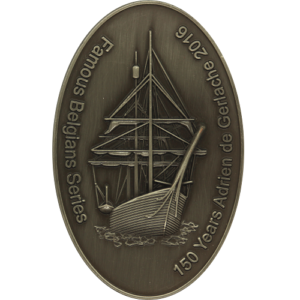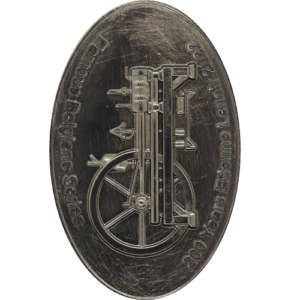Description
Jan Olieslagers (Antwerp, 4 May 1883 – Berchem, 23 March 1942) was a Belgian cyclist and motorcyclist, aviation pioneer and air ace in the First World War.
Bike and motorcycle racer
When working for the Belgian bicycle factory Minerva he started cycling races for the “Antwerp Bicycle Club” and the “Union Cycliste Internationale”. In 1901 he established a world speed record of 80 km/h. It was during this period that he received the nickname “den Antwerpschen Duivel” (the Antwerp Devil). Olieslagers won the Paris-Bordeaux-Paris motorcycle race in 1904 which earned him international fame and a fine from the French police for driving without a driving license, but such a driving license simply did not exist in Belgium. He would be the first motorcycle racer to have driven 100 km/h.
Aviation career
During his stay in Levallois-Perret he met Louis Blériot who managed a flying school at Issy-les-Moulineaux. He stopped his motorcycle career to start flying. After a successful flight, Olieslagers crashes twice in a row. This does not stop him from participating in the Antwerp Fly Week (23 October – 2 November 1909), where he makes a successful flight on the third day. He participates in many air shows. First in Seville with a Spanish aircraft, then to Nice (15 to 25 April 1910), Barcelona, Genoa and Bologna. Then followed the famous “La Grande Semaine de la Champagne” in Reims where he set several world records for longest flight. In the Netherlands he gains fame during flying shows in Groningen (August 1910), Utrecht (August 1910), Zwolle (September 1910), Amsterdam, Leeuwarden, Rotterdam, Enschede (September – October 1910), Nijmegen, Den Haag, with an interim trip in Hamburg. In Groningen he improved his duration record to almost 45 minutes and in Zwolle he got 52 minutes. At one point he saw a demonstration by the Frenchman Adolphe Pégoud who made a looping. In consultation with Louis Blériot, Olieslagers also made his first loops over Paris during the first aviation salon.
The first World War
At the outbreak of the First World War, Olieslagers and his brothers were initially assigned to the volunteer regiment Escadrille Monoplane led by Henri Crombez. In March 1915 Jan crashed with his Blériot and was in hospital for twenty days. He was the first “onderofficer” (he was now sergeant) to receive the Knights Cross in the Order of Leopold II. He continued to fly in the 2nd Escadrille, where he won his first official victory on 12 September 1915. In a Nieuport 10 he shot down a German Aviatik C above Oudstuyvekenskerke. There would be five more registered victories until the end of the war. But he probably had many more victories on his account as he made 491 flights and got involved in 92 air battles.
The Antwerp airport
In 1919 Olieslagers persuades the Belgian government to create an international airport near Antwerp, in Deurne, the current Antwerp International Airport.
During his funeral, the national anthem “Brabançonne” (the official Belgian anthem) was performed in church even though it was strictly prohibited by the German occupier.
The extra thick coin measures 70 by 45 MM in size .
The front and back are a 3D cast zinc alloy with all 3 sides polished and with black nickel plating.
The coin comes in a black velvet pouch!
The black nickel plating is an extra extra extra limited edition – 10.
The tracking codes have the BE prefix.
This item has a unique icon, and is trackable at geocaching.com.







Reviews
There are no reviews yet.